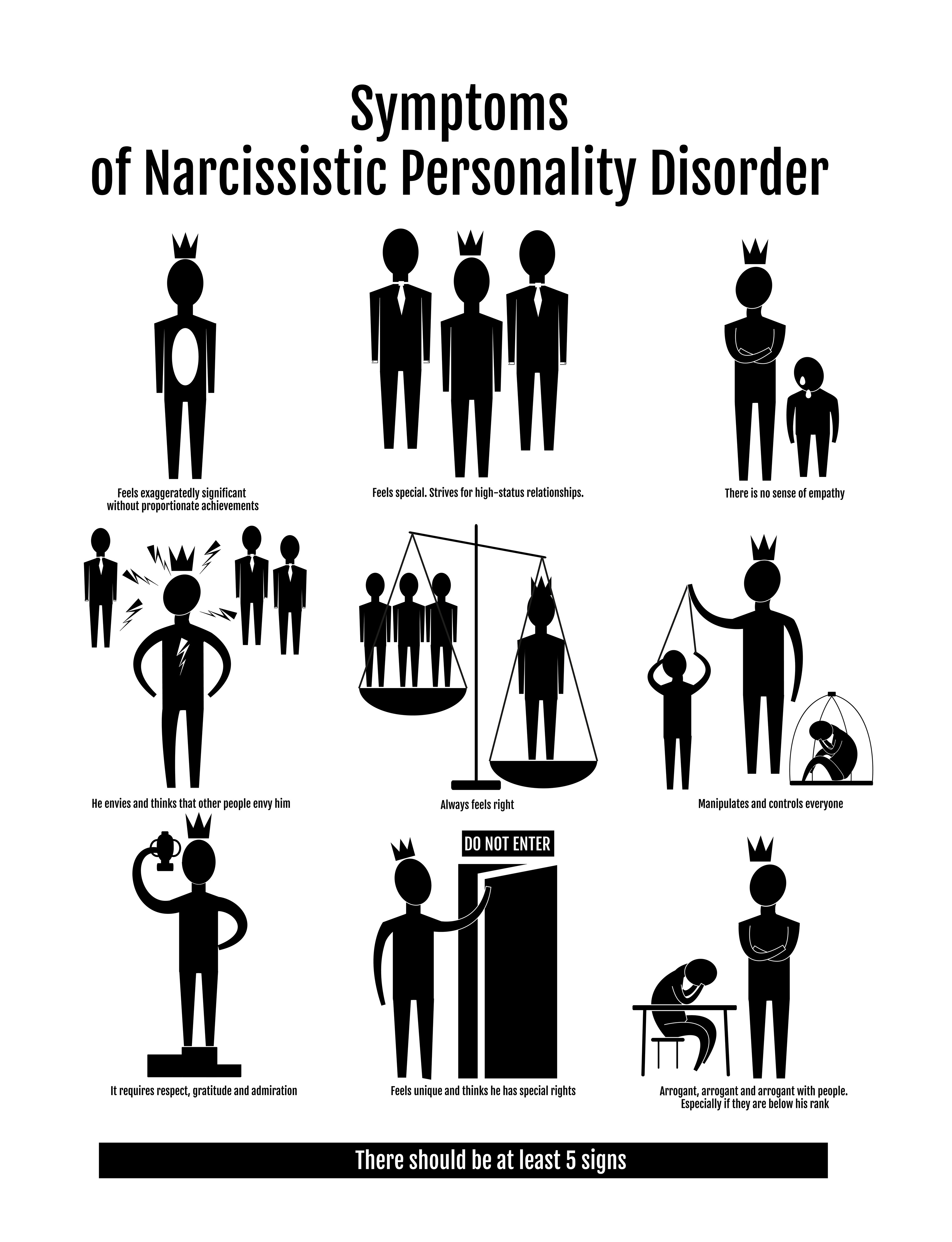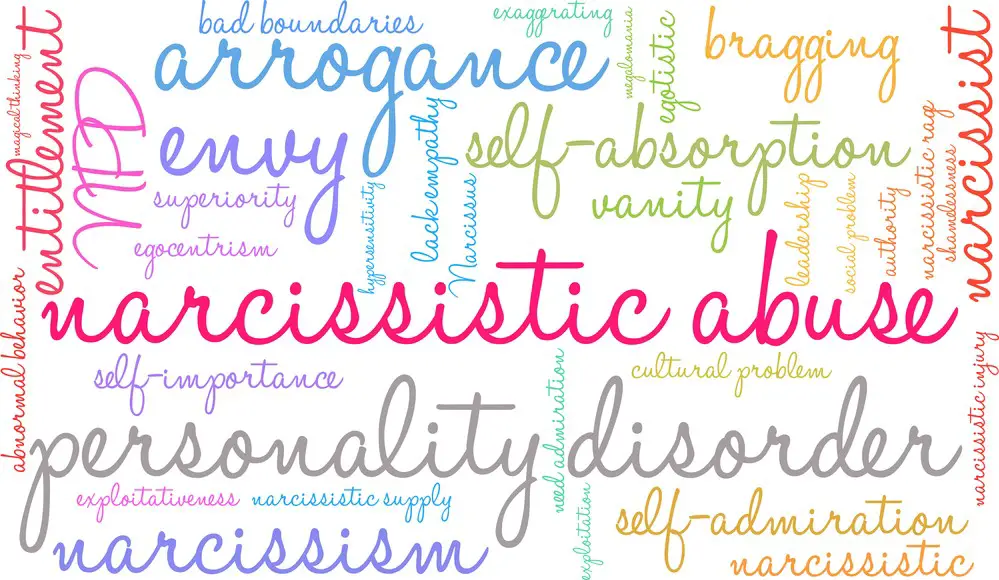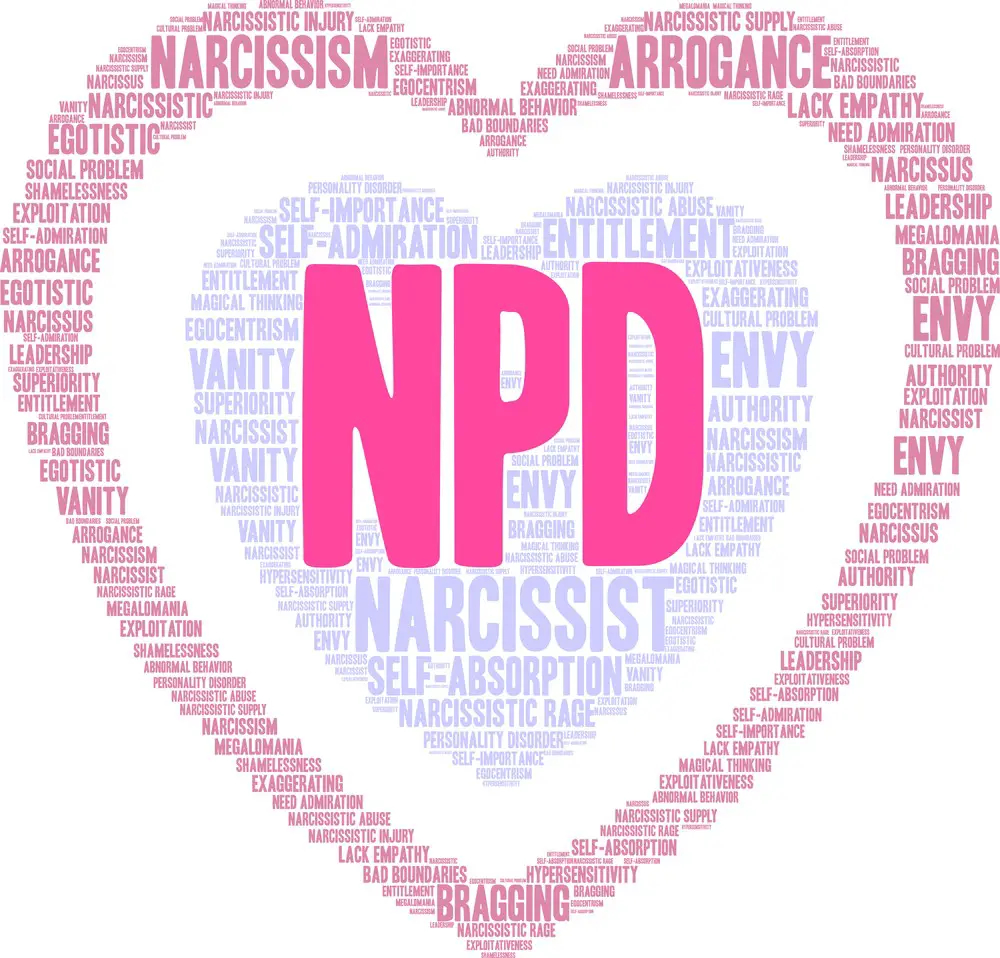As a BetterHelp affiliate, we receive compensation from BetterHelp if you purchase products or services through the links provided
Dealing with a narcissist in a relationship can be emotionally draining and challenging. As you seek closure and look for ways to make them regret losing you, it’s essential to understand their mindset and how they operate. Narcissists often lack empathy and feed on attention; recognizing this can help you develop effective strategies to make them feel the loss of your presence in their lives.
Before attempting to make a narcissist regret losing you, it’s crucial to explore your self-worth and personal healing first. By regaining your confidence and prioritizing your emotional well-being, you’ll be better equipped to detach yourself from the narcissist’s manipulation and control. This article offers practical steps, insights, and strategies to help you navigate this journey and emerge stronger, healthier, and more resilient in future relationships.
Key Takeaways
- Understand the mindset and behaviors of a narcissist in relationships
- Regain your self-worth and prioritize emotional healing after a breakup with a narcissist
- Implement practical strategies for making a narcissist regret losing you while moving forward in life
 Understanding Narcissists
Understanding Narcissists
First, you must understand their mindset and behaviors to handle a narcissist and eventually make them regret losing you. Narcissists are manipulative individuals who crave attention and admiration, often striving to maintain an image of superiority. They thrive on what is known as “narcissistic supply,” which refers to the emotional energy they gain from others, whether positive or negative.
Narcissists typically exhibit several common traits, such as:
- A sense of entitlement and expecting special treatment
- Exaggerating their achievements or talents
- Being preoccupied with fantasies of success, power, or beauty
- Lacking empathy for others and disregarding their feelings
- Being envious of others or believing that others are envious of them
It’s important to recognize these traits to understand better how a narcissist operates and how to navigate your interactions with them.
One key aspect to remember is that although narcissists may appear confident and self-assured, this often masks deep-seated insecurities. As a result, they tend to seek validation and reassurance from external sources, such as relationships, to boost their fragile self-esteem. This helps them maintain their mask of grandiosity, which is essential to their sense of self-worth.
Because of their manipulative nature, narcissists often use various tactics to draw people in and maintain power over them. Some of their common strategies include:
- Love-bombing, where they shower their target with affection, compliments, and gifts to make them feel valued and special
- Gaslighting, which involves making their target doubt their perceptions and feelings, effectively undermining their confidence and self-trust
- Playing the victim to elicit sympathy and manipulate others into catering to their needs
Now that you better understand narcissists and their manipulative behaviors, you can recognize these patterns and protect yourself from their emotional games. Ultimately, by staying firm in your boundaries and refusing to provide the narcissistic supply they crave, you will empower yourself and may even make them regret losing you.
 Identifying Narcissistic Behaviors
Identifying Narcissistic Behaviors
When dealing with a narcissist, it’s crucial to understand their core behaviors to navigate the relationship better. In this section, we’ll explore some common tendencies that signal narcissistic behavior.
One key aspect of narcissistic behavior is the need for control and power. Narcissists often aim to dominate every interaction and make it about themselves. They seek to control those around them to fuel their ego, and their manipulation tactics can manifest in various ways, like abuse, disrespect, and devaluing.
A narcissist’s primary concern is their image, leading them to manipulate others to make themselves look good. They can be highly abusive and manipulative, using tactics such as silent treatment, smear campaigns, and gaslighting to maintain their superiority. Watch for signs of manipulation like constant contradictions, twisting words, and shifting blame.
Toxic behaviors associated with narcissists may include:
- A sense of entitlement or superiority
- Lack of empathy
- Excessive need for admiration
- Exploiting others for personal gain
- Envious of others or believing others are envious of them
- Arrogance and boastfulness
In your interactions with narcissists, you might notice that they often engage in smear campaigns and silent treatment. Smear campaigns are attempts to discredit or tarnish another person’s reputation to bolster their image. Meanwhile, silent treatment is a tactic to punish those who don’t meet the narcissist’s expectations, instilling a sense of fear, confusion, and guilt in their targets.
Narcissists may also use the following strategies to maintain control:
- Devaluing: Belittling or undermining the achievements and opinions of others
- Disrespect: Ignoring boundaries and making demeaning comments
- Playing the victim: Manipulating others to gain sympathy or attention
Remember, recognizing and understanding narcissistic behaviors is the first step towards managing your relationship with them. Awareness of these tendencies can help you make informed decisions and respond appropriately to protect your well-being.
 The Aftermath of a Relationship with a Narcissist
The Aftermath of a Relationship with a Narcissist
The end of a relationship with a narcissist can leave you feeling confused, emotionally drained, and unsure of yourself. Leaving a narcissist often triggers emotions that can be difficult to manage. Your feelings, whether sadness, anger, relief, or bewilderment, are essential to the healing process and can even pave the way for making a narcissist miss you and regret losing you.
When a narcissist discards you, it might feel like the emotional connection you once shared was a facade. The breakup can bring immense emotional pain as the realization dawns that the relationship was potentially built on manipulation, emotional abuse, and control. Here are a few ways to help you navigate the aftermath of such a relationship:
- Reconnect with your emotions: Permit yourself to experience your emotions without judgment fully. You may have been taught to suppress your feelings in the relationship, but now is the time to allow yourself to feel and process every emotion that arises.
- Acknowledge the abuse: Recognizing and accepting that you’ve experienced emotional abuse can be critical for your healing process. It’s important to call it what it was, even if it’s painful to confront. This will help you avoid falling into similar patterns in the future.
- Focus on self-care: Prioritize caring for your physical, emotional, and mental health. Establish a self-care routine that includes exercise, proper nutrition, sleep, and time for relaxation and fun. This will help you heal and make the narcissist realize what they’ve lost.
- Seek support: Reach out to friends and family, or consider joining a support group for those who have experienced narcissistic abuse. Talking about your feelings and experiences with people who understand can help you navigate the waters of emotional pain and validate your experience.
- Practice self-compassion: Be gentle with yourself, and be patient as you work through the emotions that stem from leaving the relationship. Remember, healing takes time, and giving yourself the necessary space and understanding is essential.
By working through the aftermath of a relationship with a narcissist, you will see how your challenges have made you stronger. And indirectly, your growth and self-discovery can make the narcissist regret losing someone as resilient and amazing as you.
Exploring Your Worth
Remember, your self-worth is not defined by anyone else’s opinion, especially not a narcissist’s. It’s important to dive deep into your own values and beliefs and use that as the foundation for rebuilding your self-esteem.
Start by making a list of your accomplishments and strengths. These can be any achievements from work, personal relationships, hobbies, or even simply positive qualities you possess. Don’t be shy – own all of your successes and positive traits. This will remind you of your intrinsic value and help reinforce your self-worth.
Next, focus on practicing self-care. Treat yourself with the love and respect you deserve. This may include exercise, pursuing hobbies or passions, surrounding yourself with positive and supportive people, and consciously avoiding self-critical thoughts. Remember that self-care is ongoing; everyone deserves to prioritize their well-being.
Understand the importance of setting healthy boundaries. Narcissists thrive on breaking down your barriers and asserting control over you. However, it’s essential to establish firm limits in future relationships and interactions to protect yourself. Knowing your worth means knowing when to say no and stand your ground.
Finally, seek validation from within rather than seeking it from others. You don’t need a narcissist’s or anyone else’s approval to feel good about yourself. Instead, practice self-compassion and remind yourself that your worth is not dependent on others’ opinions.
By following these steps and focusing on your self-worth, you will gradually make the narcissist regret losing someone as valuable and unique as you. Moreover, this process will help you emerge stronger and more self-assured in the long run.
 Steps to Make a Narcissist Regret Losing You
Steps to Make a Narcissist Regret Losing You
Regaining Control
To make a narcissist regret losing you, it’s essential to regain control of the situation. When dealing with a narcissist, remember that you deserve respect and should stand up for your boundaries. You can take back control by staying calm and finding support. Realizing that they might need help themselves could clarify the situation.
Maintaining No Contact
One of the most crucial steps is maintaining no contact with the narcissist. This means cutting off all communication, blocking them on social media, and walking away from any interactions that could lead back to them. Resisting the urge to seek revenge or strike back is important, as it could only feed their ego and make them look bad.
- Don’t reply to their messages.
- Block their phone number and on all social media platforms.
- Ignore any attempts they make to contact you through friends or family members.
Focusing on Yourself
After breaking up with a narcissist, your focus should be on your healing and well-being. This includes allowing yourself time to grieve the end of the relationship, moving on, and cherishing your freedom from the toxic environment. Embrace positive feelings and work towards closure by finding healthy outlets for self-expression and working on self-respect.
- Take up a hobby or activity that brings you joy.
- Surround yourself with positive, supportive people.
- Prioritize self-care and self-compassion.
Working on a Positive Change
Another effective way to make a narcissist regret losing you is by changing your life positively. This could involve reinventing yourself, making a significant career move, or entering healthy relationships. Show them that you can move on and thrive without them in your life.
- Consider a wardrobe makeover to boost your confidence.
- Seek professional or personal development opportunities.
- Develop meaningful connections with new people who treat you with respect.
Making a narcissist regretting losing you may seem daunting, but remember that you can move on, heal, and strive for positive change. Focus on regaining control, maintaining no contact, working on yourself, and embracing positivity to shift the balance in your favor truly.

Emotional Healing and Moving Forward
Healing from a narcissistic relationship involves processing your emotions, prioritizing your well-being, and rediscovering your happiness. It’s important to surround yourself with a support network and focus on your emotional healing. Here are a few actionable tips to help you navigate this journey:
- Acknowledge your emotions: Take the time to recognize and accept your feelings of hurt, anger, and disappointment. You might have been denied validation and emotional connection, so acknowledging your emotional pain is essential for healing.
- Seek professional help: A therapist or support group can be invaluable in helping you process your feelings and experiences. They can offer insights and techniques to help you progress and thrive after a narcissistic relationship.
- Prioritize self-care: This time is about you and your healing. Focus on activities that you enjoy and that promote happiness and well-being. Practice self-compassion and give yourself the praise you deserve.
- Establish boundaries: Creating healthy boundaries with others is crucial to ensure you don’t fall back into old behavior patterns. Assert your needs, prioritize your self-worth, and always remember that you deserve emotional connection and support.
- Celebrate your achievements: Recognizing your progress and taking pride in your healing steps is essential. Remember that every step is in the right direction, no matter how small.
- Surround yourself with positive influences: Reach out to friends, family, or support groups that encourage your healing process and genuinely care for your well-being. Being surrounded by love and understanding can be a powerful motivator in moving forward after a painful experience.
Remember that healing from a narcissistic relationship is a process that might sometimes feel slow or challenging. But by focusing on your emotional health and learning to prioritize your well-being, you will emerge stronger, happier, and ready to reclaim your life.
 When to Recognize the S.O.S: Signs Therapy May Be Necessary
When to Recognize the S.O.S: Signs Therapy May Be Necessary
Perhaps you’ve been considering therapy but aren’t sure if it’s the right choice. The emotional toll can be staggering if you’re dealing with a narcissist. Here are some telltale signs that you may need professional help:
- Feelings of overwhelming sadness or despair
- Emotional exhaustion or numbness
- Persistent anxiety or heightened stress levels
- Difficulty focusing or making decisions
- A sense of isolation or detachment from friends and family
If any of these resonate, it might be time to take that step and consult a mental health professional.
Setting Your Compass: Therapy Goals in Navigating Narcissism
Setting goals is vital once you decide to embark on the therapy journey. Here are some potential objectives to keep you focused:
- Reclaim Emotional Independence: Aim to detach your emotional well-being from the narcissist’s actions and words.
- Build Resilience: Develop coping mechanisms for when the narcissist tries to manipulate or control you.
- Prioritize Self-Care: Learn to put yourself first, which often means setting boundaries the narcissist won’t like—but that’s okay.
- Deepen Emotional Understanding: Recognize your triggers and vulnerabilities to navigate situations involving the narcissist more wisely.
Measuring Milestones: Recognizing Progress Along the Way
Progress is often subtle and easy to overlook, especially when embroiled in emotional turmoil. However, recognizing these small wins can keep you motivated:
- Reduced Emotional Reactivity: You notice that the narcissist’s actions or words no longer have the same emotional impact they used to.
- Confidence in Boundaries: You find setting and maintaining boundaries easier without feeling guilty.
- Increased Emotional Energy: You realize you have more emotional “bandwidth” for other relationships and activities that bring you joy.
- Freedom in Choices: A growing sense of liberation in making decisions for yourself rather than being influenced by the narcissist.
Each step forward is a triumph, however small it might seem. Remember, progress is not always linear, but acknowledging your advancements will reinforce your emotional health and freedom journey.
Tips for Future Relationships
After leaving a relationship with a narcissist, building healthy and fulfilling connections in the future is essential. Here are some tips to help you navigate future relationships with love, empathy, and happiness:
- Communication: Open, honest conversations are crucial for maintaining a strong emotional connection with your partner. Practice active listening and express your thoughts, feelings, and emotions without fear of judgment or mockery.
- Emotional support: Nurture your well-being by seeking out relationships that provide comfort, validation, and genuine understanding. Prioritize partners who show empathy and emotional intelligence to create a supportive atmosphere in your relationship.
- Mutual respect: Healthy relationships are built on mutual respect and equality. Choose a partner who values your opinions, feelings, and needs without trying to control or manipulate you.
- Setting boundaries: Establish clear boundaries and communicate them to your partner. Healthy boundaries protect your emotions, well-being, and personal space. Respect your partner’s boundaries as well to maintain a balanced relationship.
- Independence: Maintain your individuality and pursue personal interests outside of your relationship. A healthy partnership allows both parties to grow and change while supporting one another.
- No tolerance for toxicity: Be aware of the signs of emotional abuse and toxicity. If you find yourself in a relationship exhibiting these traits, be prepared to address them and, if necessary, walk away for your well-being.
- Self-love and confidence: Work on building your self-esteem by practicing self-care, seeking professional help, and surrounding yourself with positive influences. A strong sense of self-worth will help you avoid falling into abusive relationships in the future.
As you enter future relationships, consider these tips, and remember that your happiness and emotional well-being are priorities. Building a strong emotional connection and promoting healthy communication’ll set the stage for a satisfying partnership that honors you and your partner.
Here are the key takeaways on making a narcissist regret losing you:
- Understand narcissists’ manipulative behaviors and mindset, like seeking admiration and controlling others.
- After a breakup, focus on healing, self-care, and processing your emotions before trying to make them regret losing you.
- Boost your self-worth by celebrating your strengths and setting boundaries. Don’t seek validation from the narcissist.
- Implement strategies like no contact, personal growth, and highlighting their narcissism to make them feel the loss.
- For future relationships, prioritize open communication, mutual respect, independence, and your happiness.
- Stay strong and keep your well-being as a priority. With self-love and resilience, you can emerge stronger after dealing with a narcissist.
Final Thoughts
Dealing with a narcissist can be tough, and making them regret losing you is challenging. But, executing some effective strategies can lead you towards that goal. In this journey, your emotional well-being must be prioritized. So, let’s recap some crucial steps to help you through this process:
- Cut off all contact: Distance yourself and end all forms of communication. Remember, no contact is your best weapon against a narcissist.
- Stay strong and confident: Your inner strength and self-assurance will be essential in making a narcissist realize what they’ve lost.
- Ignore them: Don’t give in if they try to reach out. Protect your boundaries, and maintain your sense of control.
- Expose their narcissism: Respectfully reveal their true nature to those around them. This can make them reflect on their behavior and its consequences.
Incorporate these suggestions in your journey of personal growth and healing from a narcissistic relationship. Stay resilient, and don’t forget to prioritize your well-being. In time, you’ll find that you’ve made the narcissist regret losing you and regained control of your life and happiness.
Frequently Asked Questions
How does a narcissist react when you stop chasing them?
When you stop chasing a narcissist, they will likely feel lost and try to regain control over you. They may become more aggressive to regain your attention or make you feel guilty for not pursuing them. Remember, it’s essential to stay strong with your decision and not let them manipulate you back into chasing them again.
Do narcissists care if you move on?
Narcissists often feel threatened when you move on because it signals a loss of control over you. They might experience fear of losing their source of supply for their ego and emotions. However, it’s important to maintain your boundaries and not let their reactions dictate your decisions.
How to make a narcissist respect you?
Gaining respect from a narcissist can be challenging. It helps to establish clear boundaries and maintain consistent enforcement of those boundaries. Being assertive with your needs and refusing to be manipulated also conveys that you are not someone they can control.
Do narcissists regret cheating?
Narcissists may not necessarily feel remorse for cheating in the same way that others do. They may see it as another way of feeding their ego and may not regard their actions as harmful. However, if the consequences of their cheating damage their self-image or relationships, they may feel regret.
How to make a narcissist miss you like crazy?
To make a narcissist miss you, cutting off all contact and focusing on improving your life is crucial. Build up your self-esteem and find new sources of happiness that don’t rely on their validation. This detachment usually makes them feel the loss and crave your attention, but remember to prioritize your well-being and not return to a toxic situation.
When does a narcissist start regretting the loss of a supply?
A narcissist may start regretting the loss of a supply when they realize that you are irreplaceable or when they cannot find a new source to fulfill their needs. This regret, however, is mostly rooted in their self-interest rather than genuine concern for their well-being.
? About Jacob Maslow: The Man Turning Pain into Purpose ?
??? Reclaiming Fatherhood Amidst Custody Battles ???
I’m Jacob Maslow, a dedicated dad who’s navigated the treacherous waters of divorce and custody battles with a particularly difficult ex-spouse. The experience has been anything but easy, especially given my ex’s escalating narcissism over the years. She has gone to extreme lengths despite court orders to alienate me from our children.
?️ A Voice in the Storm ?️
Writing has become more than just a passion for me; it’s a lifeline. Through articles about mental health and narcissism, I offer insights, strategies, and support for those grappling with similar issues. There’s light at the end of the tunnel; my goal is to be a beacon for others.
?️ Battling for Justice & Co-Parenting ?️
Legal woes? Been there, done that. I’ve also launched a legal site where I guide others dealing with non-compliant spouses and the weaponization of their kids against them. Courts and custody don’t have to be confusing if you’ve got the right guidance.
?♂️ Steps to Sanity: My Daily Walks ?♂️
Walking isn’t just good for physical health; it’s my daily therapy. The rhythm of each step clears my head and provides me with a tranquil space to find equilibrium. Trust me, sometimes it’s the simple things that keep us sane.
? Navigating the Mind: A Mental Health Odyssey ?
I take Lexapro and am no stranger to therapy; I recently joined BetterHelp. Why? Because self-improvement is a constant journey. My mental health has had its ups and downs, especially when cut off from my children, but I’m a testament that you can persevere and even thrive.
? Bottom Line: Anyone Can Rise ?
You’re not alone if facing a difficult ex, mental health challenges, or feeling lost. I’ve been there. But guess what? Life is not a sprint; it’s a marathon, and every step counts. Let’s conquer this journey together.

- 3 Ways Wearing a Hat Can Help Lower Your Stress Levels - April 19, 2025
- Breaking the Silence: Why Men’s Mental Health Matters More Than Ever - April 15, 2025
- How to Transform a Home’s Patio Space into a Relaxing Space - March 23, 2025
This site contains affiliate links to products. We will receive a commission for purchases made through these links.


 Understanding Narcissists
Understanding Narcissists Identifying Narcissistic Behaviors
Identifying Narcissistic Behaviors The Aftermath of a Relationship with a Narcissist
The Aftermath of a Relationship with a Narcissist Steps to Make a Narcissist Regret Losing You
Steps to Make a Narcissist Regret Losing You When to Recognize the S.O.S: Signs Therapy May Be Necessary
When to Recognize the S.O.S: Signs Therapy May Be Necessary
